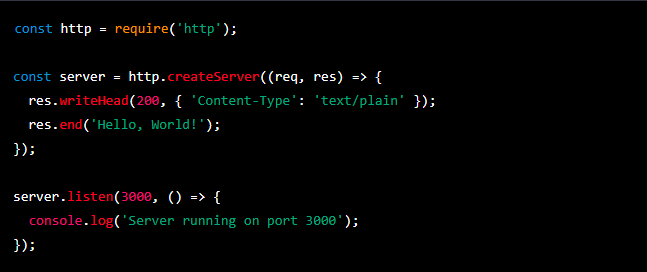

Node.js is a JavaScript runtime that allows developers to run JavaScript on the server-side. It comes with a variety of built-in modules that provide useful functionality, such as the ability to work with the file system, create HTTP servers, and interact with the operating system. One of the most commonly used built-in modules is the "fs" (file system) module, which allows developers to read and write files on the server. Here's an example of how to use the fs module to read a file:

Another useful built-in module is the "http" module, which allows developers to create HTTP servers and handle incoming requests. Here's an example of how to create a simple HTTP server using the http module:

The "os" module provides information about the computer's operating system, such as the number of CPU cores and the amount of free memory. Here's an example of how to use the os module to check the system uptime:
These are just a few examples of the built-in modules available in Node.js, there are many more available such as 'url', 'path', 'util' etc. Each one provides useful functionality that can be used in a wide variety of applications.